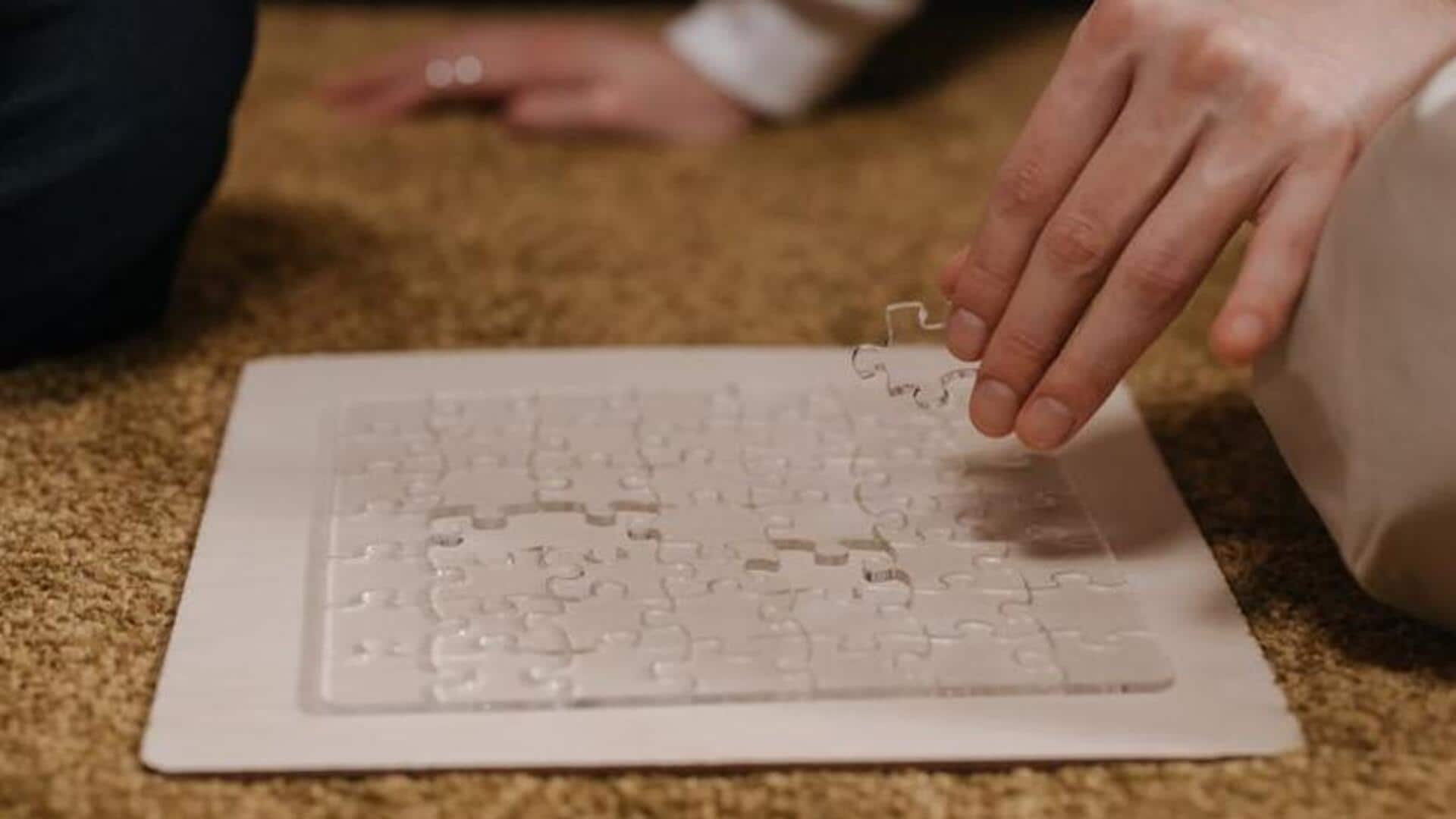
Improve your focus and patience with these mindful games
What's the story
In today's fast-paced world, children often fail to stay focused and be patient.
Mindful games can serve as a great way to sharpen these skills in a fun, engaging manner.
These games not only help improve concentration levels but also teach kids the art of being patient.
With mindful activities making way into their daily life, kids can develop better attention spans and learn to control their emotions.
Puzzle play
Puzzle solving for concentration
Puzzle solving is another excellent way to hone children's focus.
It asks them to pay attention to join the right pieces together, which builds their problem-solving skills.
From jigsaw puzzles to logic puzzles, the play comes in different formats, targeting kids of different ages and skill levels.
Regular puzzle play could drastically increase a child's focus ability for longer periods.
Yoga practice
Yoga for kids' patience
Yoga is a great activity for teaching patience and mindfulness.
Simple yoga poses made for children can teach them how to control their breathing and remain calm under pressure.
Practicing yoga gets kids to focus on their moves and breathing patterns, promoting relaxation and patience over time.
Using short yoga sessions as part of daily routines can have lasting benefits on children's mental well-being.
Memory challenge
Memory games enhance attention span
Memory games make for great tools to improve attention span in kids.
Since these games require players to remember sequences or match pairs from memory, they strengthen cognitive skills related to focus and recall.
Playing memory games regularly improves short-term memory retention, while also making learning fun through interactive play.
Breathing techniques
Breathing exercises foster calmness
Breathing exercises are simple yet potent techniques that teach kids to stay calm during stressful situations.
It helps them consciously focus on their breath control patterns over time with practice sessions lasting just five minutes.
They can do it every day before bedtime or after school hours when they need some downtime from academic pressures at home too!